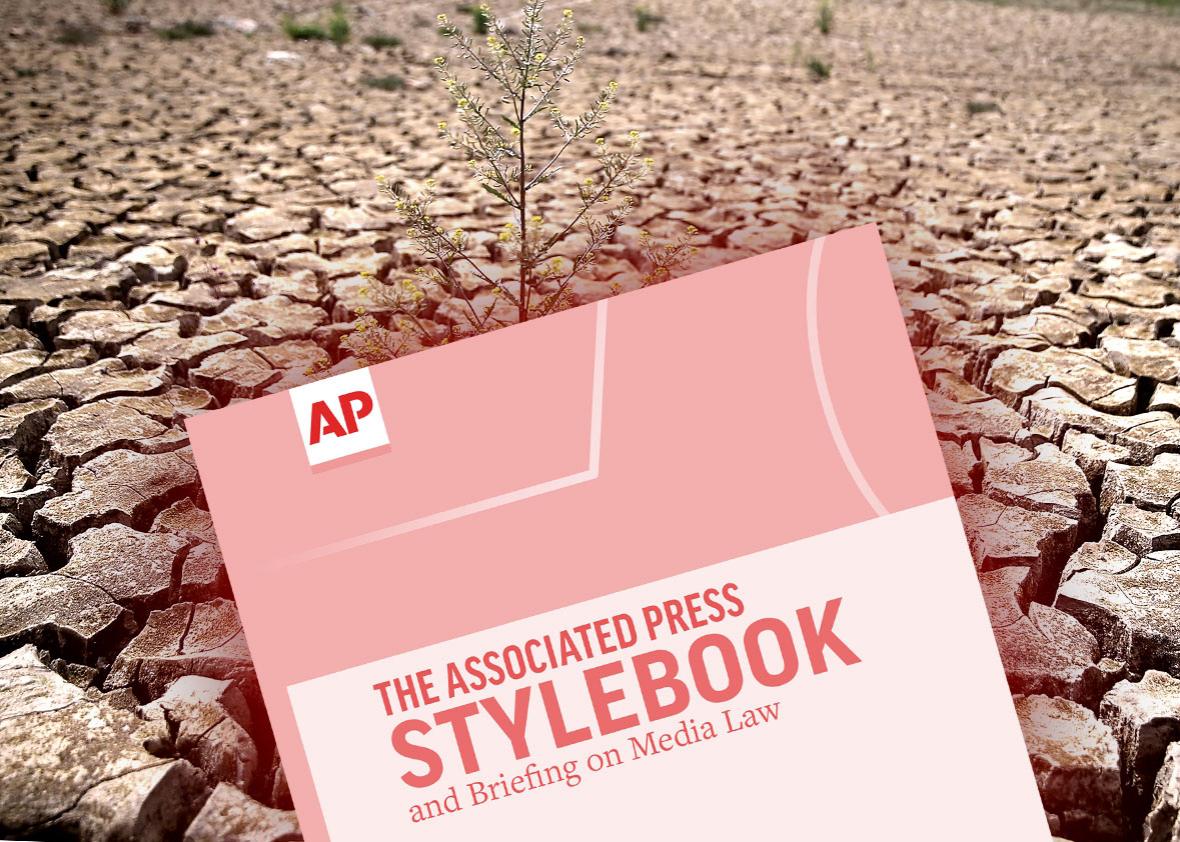Words matter, and in journalism, what the Associated Press says matters the most. Thousands of publications around the world use its style guidelines, so last week, when AP announced it was scrapping the terms climate deniers and climate skeptics to refer to those who don’t accept human influence on climate change, the decision immediately became controversial, and for good reason.
Instead of denier or skeptic, the news outlet now prefers the term climate doubters, or, for the long-winded: those who reject mainstream climate science. The problem is, while this terminology is well intentioned, this change is a step backward. And the choice of doubters, specifically, is wrong.
As Denise Robbins, a researcher for Media Matters for America, a progressive science advocacy organization, pointed out on Twitter, the people who deny climate change “are NOT doubters. They are VERY certain that human-caused global warming isn’t happening.”
Most of the Republicans running for president are opposed to any effort to slow America’s emissions of greenhouse gases that contribute to climate change. Climate-denying conservatives have tried for decades to deliberately change public perception on the issue while at the same time raking in hundreds of millions of dollars in campaign contributions from the fossil fuel industry. This is not “doubt.” This is vested interest. (ThinkProgress has a good overview of the background of the AP’s decision, and Science magazine has a roundup of other reactions to the changes including, notably, praise by noted climate science deniers Anthony Watts and Marc Morano.)
As New York magazine’s Jonathan Chait writes, when it comes to climate science, the Republican Party is on the global fringe. His analysis is based on a recent paper from Sondre Båtstrand of the University of Bergen in Norway that found that among leading conservative parties in nine major democracies, the Republican Party is the only one that willfully opposes basic truths of contemporary science. Chait reminds us that even a “moderate” position within the American conservative party—like Jeb Bush’s, for example, who recently repeated the talking point that action on climate change would be bad for the economy—would be labeled a “rabid extremist” on the global stage: “In any other democracy in the world, a Jeb Bush would be an isolated loon, operating outside the major parties, perhaps carrying on at conferences with fellow cranks, but having no prospects of seeing his vision carried out in government. But the United States is different.”
USA! USA! But seriously, in what universe would it ever be OK to argue that we won’t work to preserve the habitability of our planet because it will cost too much? (By the way, it won’t.) And this extreme situation calls for a strong word to label this extreme behavior. Deniers fits.
The AP cited a fear of connotation of the Holocaust as a primary reason for the change. But deniers are people who refuse to accept a widely agreed-upon fact, which is exactly what’s happening here. (Slate’s copy chief, Megan Wiegand, allows whatever description a seems most apt for a given situation: doubter, denier, skeptic.)
AP science writer Seth Borenstein, who has written extensively on climate change for more than two decades, consulted on the AP’s new climate style guideline. Over the weekend, he talked about the changes with WNYC’s On the Media. This exchange between the host, Bob Garfield, and Borenstein demonstrates just how confusing the word doubter can be:
GARFIELD: If the subject is precision, it strikes me that obscuring clear language because of negative associations is a very dangerous accommodation. And secondly, doubt means a feeling of uncertainty or a lack of conviction. Deny is to state that one refuses to admit the truth or existence of. And those who deny human responsibility for global warming are doing just that. They’re not expressing “I’m not really sold on this,” they’re expressing “no this doesn’t exist.”
… It’s just hard for me to get my head around the idea of substituting a word that is insufficient for one that does most of the job pretty well.
BORENSTEIN: It does most of the job pretty well according to one side. Granted that side has the majority of science on it.
GARFIELD: Seth, I apologize, I’m going to cut you off here. One side? This is the very definition of false balance.
…
BORENSTEIN: There is no false balance in the way AP covers the science. But there’s a difference between the science and the semantics. We’re not talking, you and I, about the science right now. We’re talking about the semantics. And there are different sides on the semantics. I’ve been using climate doubter for months and no one has said anything.
The AP is right to be sensitive to whether the term deniers, which has been used to describe people who deny the Holocaust, is misleading or brings up inappropriate connotations, although others suggest such a concern is probably unfounded. But choosing to call deniers doubters risks giving additional weight to a dangerous position at a crucial time. Doubt implies there’s some wiggle room on the issue when all evidence points to the contrary.
Since the AP no longer wants to use the word deniers, the Huffington Post’s Ryan Grim reached out to Twitter to crowdsource a new list of alternatives. At the top of the list: drought enthusiasts, grandchildren haters, and reality challenged.
Sounds about right.
